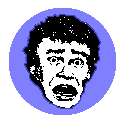IBM and Apple had a baby, and Motorola delivered it. Fanatical Christians and zealous feminists unite against pornography. A sheep has been cloned. Against such features of our increasingly-psychedelic cultural landscape, it should come as no surprise that the fires of the War on Drugs would burn both ends of the political candle. The stereotype of drug-decriminalization advocates is that they are irresponsible and stinky hedonists, or ponytailed socialist intellectuals. Here, however, we have two free-market libertarians — one an economist under the Reagan administration — laying down elaborate and unequivocal arguments for legalization.
Friedman is an economic theorist, and an advocate of limited government. He argues that drug prohibition is economically unsound, and represents a blatant abuse of the government’s assigned role as ‘servant of the people,’ as a protector of individuals from other individuals. Szasz, the ‘maverick psychiatrist’, positions himself against the ‘therapeutic state’. He suggests that the medical-legal system has placed health above freedom as a social virtue, and that we have become acclimated to an increasingly paternalistic system, which ‘protects’ us from ourselves.
The arguments against Prohibition are rousing enough, but the authors surely ruffle some feathers with their hard-hitting libertarian solutions. Friedman goes so far as to suggest that the FDA should be eliminated. Generally, the idea is legalization for adults, treating currently ‘illicit’ ‘drugs’ the same way we treat alcohol and tobacco: as commodities subject to market competition. Food — and perhaps drugs — for thought. [The Drug Policy Foundation Press]
